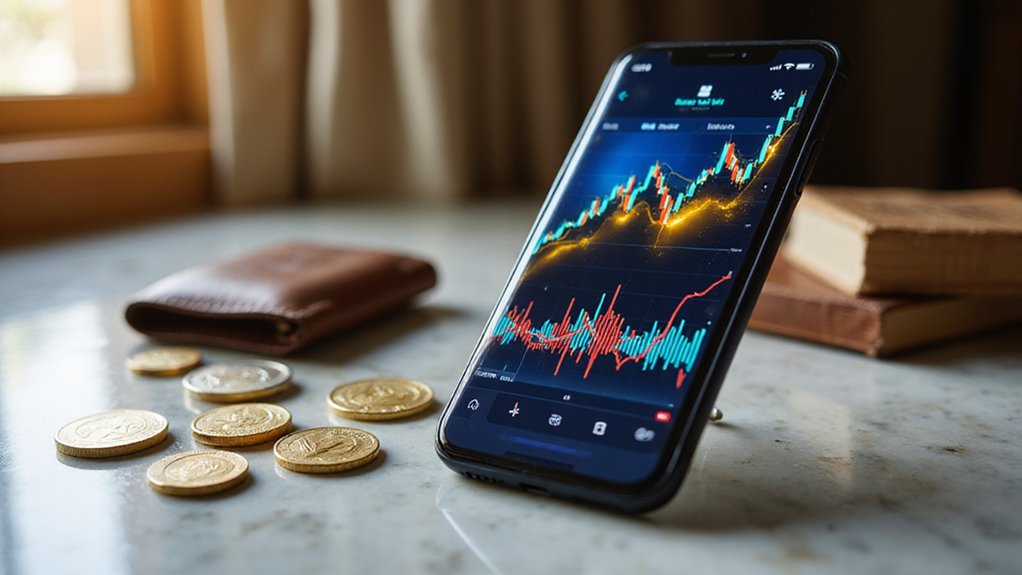BBVA has vaulted into Spain’s retail cryptocurrency market, becoming the first traditional bank to offer Bitcoin and Ether trading directly through its mobile app to everyday customers—a move that transforms the country’s financial landscape while simultaneously raising the eternal question of whether banking incumbents can successfully compete with nimble crypto-native platforms that have spent years perfecting the art of digital asset custody.
BBVA’s crypto pivot challenges whether traditional banking infrastructure can rival platforms built from the ground up for digital asset mastery.
The Spanish banking giant secured approval from the National Securities Market Commission (CNMV) in March 2025, launching services fully compliant with the EU’s Markets in Crypto-Assets (MiCA) regulation. Unlike Switzerland’s 2021 iteration targeting private banking clients with $10,000 minimum deposits, Spain’s offering eliminates barriers, welcoming all retail customers of legal age without wealth requirements—a democratization that would make Satoshi Nakamoto proud, assuming he’s still monitoring banking industry developments from wherever digital revolutionaries retreat.
What distinguishes BBVA‘s approach is its insistence on maintaining complete custody control rather than outsourcing to third-party providers. This decision reflects either admirable confidence in internal infrastructure capabilities or healthy skepticism about entrusting client assets to external custodians whose security protocols remain opaque.
The bank emphasizes that users retain full autonomy over investment decisions while explicitly avoiding advisory services—a prudent stance given cryptocurrency’s propensity for volatility. This stance aligns with BBVA’s broader approach of providing crypto trading platforms without offering financial advice, ensuring clients assume full responsibility for their investment decisions.
Spain represents BBVA’s third crypto market after Switzerland and Turkey, with each launch targeting different customer segments and regulatory environments. The bank’s ambitious roadmap includes expanding beyond Bitcoin and Ether to encompass stablecoins and tokenized assets, alongside plans for issuing a euro-backed stablecoin approved by Banco de España—essentially challenging Tether’s dominance through traditional banking infrastructure. As the GENIUS Act establishes comprehensive federal frameworks for stablecoin markets in the United States, European banks like BBVA are positioning themselves to compete in the evolving digital currency landscape with their own regulatory-compliant offerings. BBVA’s extensive blockchain technology experience spans over a decade, providing the technical foundation necessary for these ambitious digital asset initiatives.
The integration within BBVA’s existing mobile platform creates seamless user experience, positioning cryptocurrency trading alongside conventional banking services. This normalization of digital assets within traditional financial ecosystems represents a significant shift from crypto’s rebellious origins toward mainstream acceptance.
Whether BBVA’s entry signals genuine innovation or merely institutional FOMO remains unclear. However, the bank’s all-encompassing approach—combining regulatory compliance, internal custody, and user-friendly integration—establishes a compelling precedent for European financial institutions contemplating similar ventures.
The success of this initiative will likely influence whether other traditional banks follow suit or continue observing from the sidelines.









